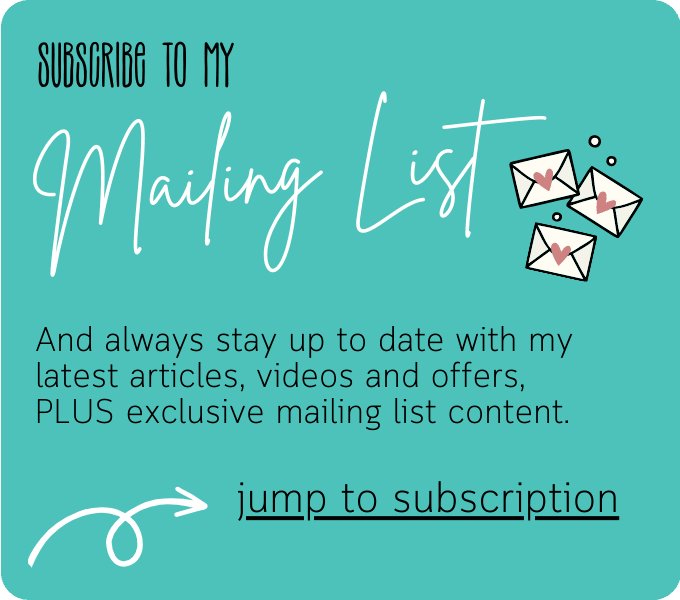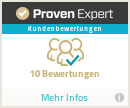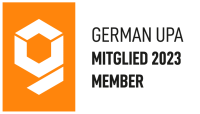Fearless Learning: How Admitting „I Don’t Know“ Drives Success
27. Juli 2023 2023-07-27 7:42Fearless Learning: How Admitting „I Don’t Know“ Drives Success
In a world that often glorifies expertise and self-assurance, it’s easy to fall into the trap of believing that admitting „I don’t know“ is a sign of weakness. We may fear that revealing our lack of knowledge could diminish our credibility or hinder our progress. However, embracing the vulnerability of not knowing can be a powerful catalyst for personal and professional growth.
This blog post will explore the concept of fearless learning and its transformative impact on our lives. We’ll delve into the strength of seeking help and the benefits of embracing a growth mindset. As a UX and leadership coach, I know firsthand the value of admitting my own limitations and how it enables me to better support my clients on their growth journey.
Fearless learning is about recognising that we don’t have all the answers, and that’s okay. It’s a mindset that encourages us to step outside our comfort zones, ask for help, and embrace the journey of continuous improvement. By adopting this approach, we open ourselves to new possibilities, deeper connections, and unparalleled success.
So, let’s discover how admitting „I don’t know“ can be the driving force behind our most significant achievements.
Embracing Vulnerability and Growth
In a world that often celebrates expertise and portrays vulnerability as a weakness, admitting „I don’t know“ can feel uncomfortable and intimidating. We may fear being judged, dismissed, or perceived as inadequate. However, proper growth and self-discovery lie on the other side of this fear.
Embracing vulnerability is not about displaying incompetence but rather acknowledging the inherent humanity in all of us. It takes courage to admit that we have room for improvement and that admission itself is a testament to our willingness to learn and evolve.
When we open ourselves to vulnerability, we create a space for growth. It allows us to step beyond the confines of our comfort zones and explore uncharted territories. Each step into the unknown becomes an opportunity to gain new insights, refine our skills, and expand our horizons.
The fear of not knowing can act as a barrier, preventing us from taking risks and pursuing our goals. However, when we reframe this fear as an invitation to explore, we unlock the potential for greatness. Embracing vulnerability enables us to embrace challenges with resilience and a willingness to learn from setbacks.
Think about the most influential leaders, artists, and innovators throughout history. Many of them openly shared their struggles and moments of self-doubt. Their vulnerability became a source of inspiration for others, proving that success and growth are not solely reserved for those who have it all figured out.
As a UX and leadership coach, I understand the power of vulnerability in fostering authentic connections with my clients. By sharing my own learning journey and admitting that I don’t have all the answers, I create a safe and open space for clients to explore their challenges and aspirations. This transparency builds trust and allows us to collaboratively explore strategies and solutions that lead to meaningful growth.
Fearless learning is not about pretending to know everything; it’s about having the humility to admit what we don’t know and the curiosity to seek knowledge from diverse sources. When we embrace vulnerability as a strength rather than a weakness, we unlock the door to endless possibilities for growth, innovation, and success.
The Strength in Seeking Help
One of the most profound acts of courage is the willingness to ask for help. Yet, societal norms sometimes discourage us from seeking assistance, perpetuating the belief that doing so is a sign of inadequacy. In reality, asking for help is a powerful display of self-awareness and a recognition of our interconnectedness as human beings.
When we acknowledge that we don’t know everything, we open the door to collaboration and shared knowledge. Seeking help allows us to tap into the expertise and perspectives of others, enriching our understanding and empowering us to tackle challenges with newfound clarity.
A fundamental truth lies at the heart of seeking help: no one achieves greatness in isolation. Throughout history, some of the most remarkable accomplishments resulted from collective effort and collaborative endeavours. From scientific discoveries to groundbreaking innovations, the power of seeking help has played a pivotal role in shaping our world.
As individuals, we possess unique strengths and experiences. Admitting „I don’t know“ is not a declaration of weakness but inviting others to contribute their insights. It fosters an environment of trust and mutual respect, where everyone’s input is valued and appreciated.
In UX, seeking help becomes even more vital. The ever-evolving landscape of technology and human behaviour demands a continuous learning mindset. Embracing this mindset allows us to adapt, innovate, and design solutions that truly resonate with users.
When I coach and teach, I encourage my clients to view seeking help as an asset rather than a limitation. Together, we delve into the wealth of knowledge and resources, leveraging the collective wisdom to navigate complex challenges.
Beyond the tangible benefits of seeking help, this act of vulnerability can also lead to profound personal growth. It fosters a sense of humility and the recognition that there is always more to learn. This growth mindset, combined with the support of a collaborative community, becomes a catalyst for professional development and long-term success.
Remember that seeking help is a sign of strength and wisdom. It’s a choice to embrace growth and tap into the vast network of knowledge that surrounds us. By reaching out to others, we enrich not only our own understanding but also contribute to the collective progress of humanity.
The Coach’s Perspective
As a UX and leadership coach, my journey has been shaped by a profound realisation: I don’t know everything, and that’s perfectly alright. Embracing this truth has allowed me to step into my role as a coach and teacher with authenticity and humility.
In the early days of my career, I felt pressure to present myself as an all-knowing expert. I believed that admitting any knowledge gaps would undermine my credibility and impact my ability to guide others. However, gaining experience and understanding, I realised that being a coach is not about showcasing flawless expertise but guiding and empowering others on their unique paths.
I recognised that I could be a coach and a teacher without claiming to have all the answers. Instead, my role evolved into a learning companion, exploring the vast realm of UX and leadership with my clients. My vulnerability became a strength, enabling me to connect more deeply with those I support.
By sharing my learning journey and acknowledging my own areas of growth, I create an open and inclusive space for my clients. They feel encouraged to do the same, fostering an environment where we collectively explore challenges and opportunities without fear of judgment.
The coaching relationship is not built on the premise of having all solutions ready but on a commitment to uncovering tailored strategies and insights. It’s a partnership in which we embrace the spirit of fearless learning, knowing that we can navigate even the most complex terrains together.
As a coach, I value curiosity and a genuine desire to see my clients succeed. I draw from my passion for teaching and my dedication to continuous improvement, supporting individuals as they embrace vulnerability and grow personally and professionally.
My journey as a coach is a testament to the beauty of embracing vulnerability and seeking help. It is a journey that never ends, as every new client brings unique perspectives and challenges, enriching my understanding and deepening my commitment to growth.
I have learned that being a coach goes beyond imparting knowledge; it’s about creating a safe space for exploration, empowering clients to trust their instincts, and guiding them towards unlocking their full potential. In this space, we foster fearless learning and nurture the seeds of greatness.
Asking for help isn’t a sign of weakness, it’s a sign of strength because it shows you have the courage to admit when you don’t know something, and that then allows you to learn something new.
Barack Obama
As I continue to learn alongside my clients, I am reminded of the profound quote by Barack Obama: „Asking for help isn’t a sign of weakness, it’s a sign of strength.“ This sentiment embodies the essence of my coaching philosophy and the transformative power of embracing vulnerability on our journey to success.
Strategies for Fearless Learning
Embracing fearless learning requires a shift in mindset and adopting practical strategies that empower us to overcome the fear of admitting „I don’t know“. Let’s explore some actionable steps to cultivate a growth-oriented approach to seeking help and embracing vulnerability:
- Reframe „I don’t know“ as an opportunity: Instead of viewing lack of knowledge as a shortcoming, consider it an invitation to explore new frontiers of learning. Embrace the excitement of discovering something new and recognise that every question asked is a step towards expanding your understanding.
- Practice self-compassion: Be kind to yourself when facing uncertainties. Understand that everyone, including experts, started somewhere and went through a learning process. Treat yourself with the same compassion and understanding you would offer a friend in a similar situation.
- Seek support from a trusted network: Surround yourself with individuals who value learning and personal growth. Seek help from mentors, peers, or friends who support your journey and encourage you to embrace vulnerability.
- Start small and build confidence: Begin seeking help on more minor challenges to build your confidence gradually. Each successful experience will reinforce the idea that seeking assistance is a productive and positive step towards growth.
- Recognise the strength in vulnerability: Acknowledge that being open about not knowing everything makes you relatable and authentic. This authenticity fosters more profound connections with others and creates a supportive environment for mutual growth.
- Celebrate growth and progress: Celebrate every step of your learning journey. Recognise the progress you make, even if it feels incremental. Each moment of growth is significant and contributes to your overall development.
- Practice active listening: When seeking help, be an active listener. Engage fully with the advice and insights offered by others. Demonstrating genuine interest and appreciation for their input fosters stronger relationships and encourages further support.
- Share success stories: Learn from others who have embraced fearless learning and sought help to achieve their goals. Their stories remind us that greatness can be achieved by opening ourselves to support and collaboration.
- Challenge limiting beliefs: Challenge the societal norms that discourage seeking help. Remind yourself and those around you that reaching out for assistance is a courageous and empowering act that can lead to exceptional growth and development.
- Set realistic expectations: Understand that no one possesses all knowledge in a given field. Embrace the idea that continuous learning is a lifelong journey, and there will always be more to discover and explore.
By integrating these strategies into your learning approach, you’ll develop a resilient and empowered mindset that seeks knowledge fearlessly. As you embrace vulnerability and seek help, you’ll discover new horizons of personal and professional growth.
Conclusion
Embracing vulnerability is not a sign of weakness but a demonstration of strength and authenticity. It opens doors to new possibilities, fosters deeper connections, and propels us towards unparalleled success.
As a UX coach, I understand that being a coach is not about having all the answers but guiding and empowering others on their unique paths. My commitment to fearless learning allows me to create a safe and open space for my clients, where we explore challenges and opportunities together without fear of judgment.
Fearless learning isn’t about striving for perfection; it’s about embracing the journey of growth and continuous improvement. Each step we take towards vulnerability brings us closer to uncovering our true potential and positively impacting the world around us.
I invite you to take the next step on your fearless learning journey. If you are ready to unlock your full potential, explore the boundless possibilities of UX, and embrace the strength in seeking help, I am here to support you.
As your coach, I will guide you with passion, dedication, and a genuine desire to see you succeed. Together, we’ll navigate the ever-changing landscape of UX, celebrating each milestone and overcoming challenges as a team. Book your free discovery coaching session today, and let’s unlock your path to success!
Further Reading
Lancaster, A. (2020). The Power of “I Don’t Know”. The Muse. https://www.themuse.com/advice/the-power-of-i-dont-know
Porter, T. (2018). The Benefits of Admitting When You Don’t Know. Behavioral Scientist. https://behavioralscientist.org/the-benefits-of-admitting-when-you-dont-know/
Pot, J. (2021). Admit when you don’t know things. Why saying „I don’t know“ is so powerful. Zapier. https://zapier.com/blog/admit-when-you-dont-know-things/
Tolentino, R. (2020). The Hidden Powers in Admitting “I Don’t Know”. Cult by Honeypot. https://cult.honeypot.io/reads/admitting-i-dont-know/








